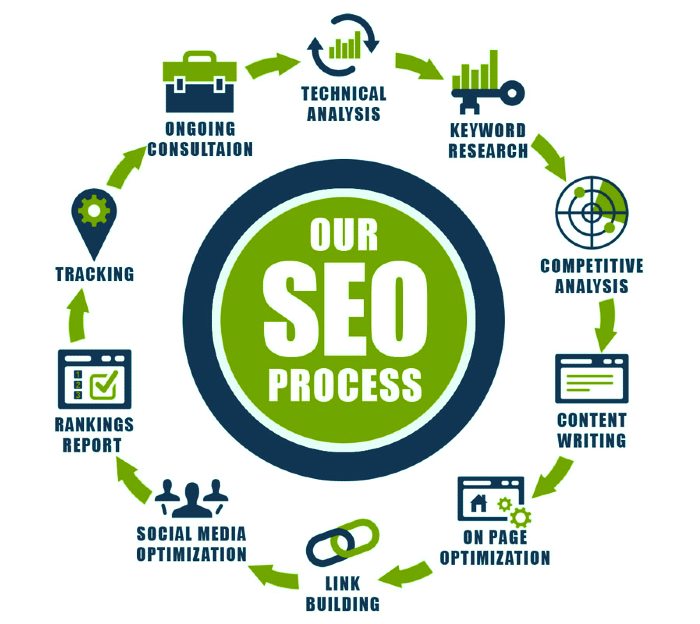
what is seo??
Search engine optimization is the process of improving the quality and quantity of website traffic to a website or a web page from search engines. SEO targets unpaid search traffic rather than direct traffic, referral traffic, social media traffic, or paid traffic.
Types of seo??
- On-page SEO. Our Beginners Guide to SEO outlines the basics of search engine optimization, and on-page SEO is one of the easiest and most common ways to boost site visibility. …
- Off-page SEO. …
- Local SEO. …
- Technical SEO.
What is on-page SEO?
On-page SEO (also known as “on-site SEO”) is the practice of optimization wordpress content for search engines and users. Common on-page SEO practices include optimizing title tags, content, internal links, URLs, and other ranking factors.
What is off-page seo?
“Off-page SEO” (also called “off-site SEO”) refers to actions taken outside of your own website to impact your rankings within search engine results pages (SERPs) and to influence how people discover and engage with your content. Off page SEO is important as a strategy for bringing attention and authority to your site, and when combined with on-page SEO and technical SEO, off-page SEO can help you meet your goals for search visibility, crawling, indexing, traffic, and conversions.
Off-page optimization seeks to improve the perception both search engines and people have of a site’s:
- Expertise
- Experience
- Authoritativeness
- Trustworthiness
- Relevance
- Popularity
Effective off-page SEO activities, such as building backlinks and engaging on social media, are crucial for demonstrating a site’s trustworthiness and reputation to Google and other search engines.
When reputable and relevant sites and people link to or cite your website’s content, they are effectively “vouching” for its quality. Search engines and the searching public can consider this akin to a vote for why your organization deserves to be visible on the web. You may have to work hard to earn these “votes” and some you may earn without even asking, but overall, the goal of your off-page SEO is to build an effective digital footprint that proves why you deserve to be surfaced by search engines and chosen by the public.
On-page SEO and off-page SEO are two essential components of a comprehensive search engine optimization strategy. While on-page SEO focuses on optimizing a website’s content, structure, and HTML elements to improve search engine rankings, off-page SEO involves actions outside a website aimed at building its authority, reputation, and visibility across the web.
On-page SEO includes techniques such as keyword optimization, meta tags, internal linking, and improving site speed. These efforts ensure that search engines can easily crawl and understand your content, leading to better rankings. For example, optimizing your title tags and meta descriptions can make your pages more attractive to search engines and users alike.
On the other hand, off-page SEO is all about building your website’s credibility and authority through external means. This includes earning backlinks from authoritative websites, gaining mentions and citations, and leveraging social media platforms to increase your online presence. For instance, when a reputable site links to your content, it signals to search engines that your site is trustworthy and relevant, which can boost your rankings.
Both on-page and off-page SEO are crucial for a successful search engine optimization strategy. While on-page SEO ensures your website is optimized for search engines, off-page SEO helps build your site’s authority and reputation, making it more likely to rank higher in search engine results.
Local seo
Local SEO is a search engine optimization (SEO) strategy that helps your business be more visible in local search results on Google. Any business that has a physical location or serves a geographic area can benefit from local SEO.
Technical seo
Technical SEO is the process of ensuring that a website meets the technical requirements of modern search engines with the goal of improved organic rankings. Important elements of technical SEO include crawling, indexing, rendering, and website architecture.
